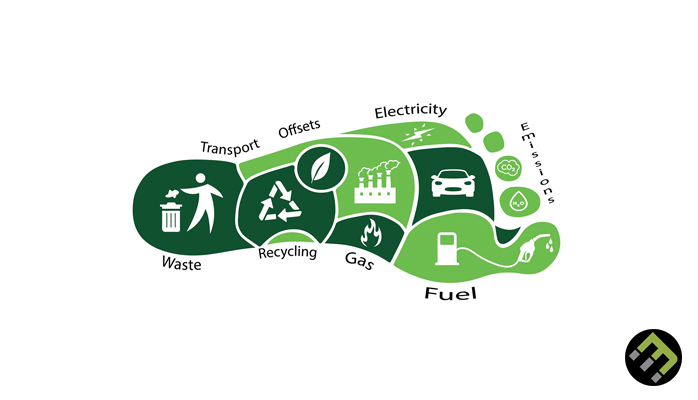- Empty cart.
- Continue Shopping
How to Reduce Carbon Footprint for Health and Sustainability

The issue of climate change is becoming increasingly urgent, and one of the most effective ways individuals can make a difference is by reducing their carbon footprint. Not only does this contribute to a more sustainable planet, but it also has numerous health benefits.
Understanding the Carbon Footprint
Before diving into solutions, it’s important to understand what a carbon footprint is. Simply put, it’s the total amount of greenhouse gases emitted directly or indirectly by human activities. This includes everything from the energy used to power your home to the emissions from the car you drive. By reducing your carbon footprint, you contribute to lowering the overall amount of greenhouse gases in the atmosphere, which is crucial for mitigating climate change.
Transportation Choices
Opt for Public Transport
One of the most effective ways to reduce your carbon footprint is by minimizing the use of personal vehicles. Public transportation is a more energy-efficient alternative, and it also reduces road congestion and air pollution.
Bike or Walk
For shorter distances, consider walking or biking. Not only is this good for the environment, but it’s also excellent for your health, offering cardiovascular benefits and reducing the risk of lifestyle-related diseases.
Sustainable Eating Habits
Eat Locally and Seasonally
Transporting food over long distances contributes significantly to carbon emissions. By choosing to eat locally-produced and seasonal foods, you can reduce this impact. As a bonus, local produce is often fresher and more nutritious.
Reduce Meat Consumption
The meat industry is a major contributor to greenhouse gas emissions. You don’t have to go completely vegetarian to make a difference; even reducing meat consumption by a few meals per week can have a significant impact.
Energy Efficiency at Home
Use Energy-Efficient Appliances
Switching to energy-efficient appliances can significantly reduce your home’s energy consumption. Look for products with the ENERGY STAR label, which meet energy efficiency guidelines set by the U.S. Environmental Protection Agency.
Unplug Devices
Many electronic devices consume energy even when they’re not in use. Make it a habit to unplug devices like chargers, computers, and televisions when they’re not being used.
Waste Management
Recycle and Compost
Recycling materials like paper, glass, and plastic reduces the need for new products, thereby lowering carbon emissions. Composting organic waste also reduces methane emissions from landfills.
Use Reusable Products
Opt for reusable products like water bottles, shopping bags, and containers instead of single-use plastics. This not only reduces waste but also lowers the energy and resources needed to produce new items.
In conclusion, reducing your carbon footprint is a win-win situation for both the planet and your health. Simple changes in transportation choices, eating habits, energy usage, and waste management can have a profound impact. While individual actions may seem small, collective efforts can lead to significant change. By adopting a more sustainable lifestyle, you’re contributing to a healthier, more sustainable future for all








